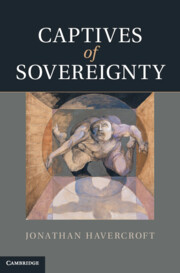3 - Sovereignty, language, and ethical skepticism
from Part I
Published online by Cambridge University Press: 07 September 2011
Summary
The received value of Names imposed for Signification of things, was changed into Arbitrary: For inconsiderate Boldness, was counted true-hearted Manliness; provident Deliberation, a handsome Fear; Modesty, the Cloak of Cowardice; to be wise in everything, to be lazy in everything. A furious suddenness was reputed a point of Valour. To re-advise for the better Security, was held for a fair Pretext of Tergiversation. He that was fierce, was always trusty; and he that contraried such a one, was suspected. He that did insidiate, if it took, was a wise Man; but he that could not smell out a Trap laid, a more dangerous Man than he: But he that had been so provident as not to need to do the one or the other, was said to be a dissolver of Society, and one that stood in fear of his Adversary. In brief, he that could out-strip another in the doing of an evil Act, or that could perswade another thereto, that never meant it, was commended.
Thucydides, History of the Peloponnesian War as translated by Thomas HobbesThe epigraph to this chapter comes from Thomas Hobbes’s translation of Thucydides’ History of the Peloponnesian War. The passage is a famous one, describing the fallout of the civil war on Corcyra. Thucydides notes that the significance of this episode in the Peloponnesian War was that “it was in Corcyra that there occurred the first examples of the breakdown of law and order.”
- Type
- Chapter
- Information
- Captives of Sovereignty , pp. 76 - 98Publisher: Cambridge University PressPrint publication year: 2011

